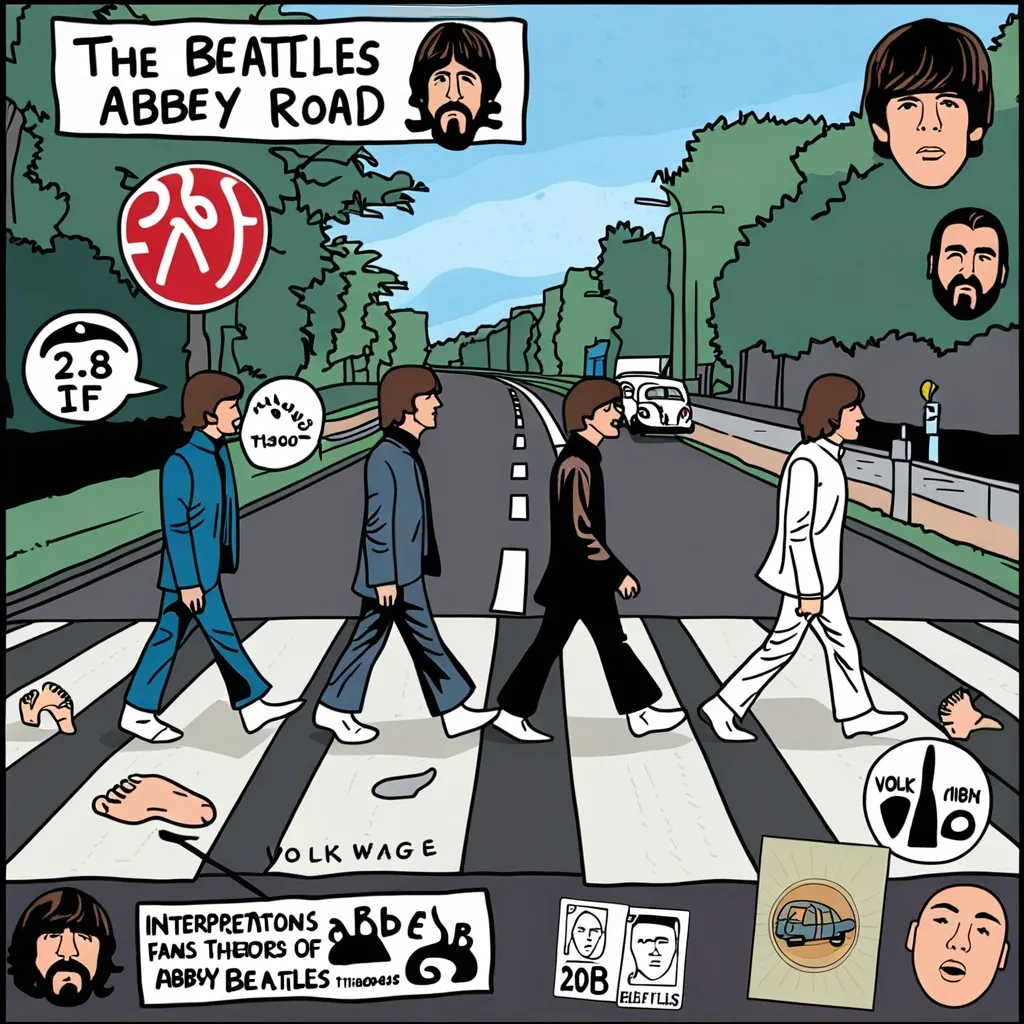The Quest for Eternal Youth: A Modern-Day Fountain of Youth
We’ve all dreamed about it at some point - what if we could turn back the clock and regain our youthful vigor? It’s a fantasy that’s captivated humans for centuries, from ancient myths to modern sci-fi. But now, thanks to some seriously deep pockets and cutting-edge tech, that dream might be inching closer to reality.
Enter Bryan Johnson, a 46-year-old tech millionaire who’s taking the concept of “aging gracefully” to a whole new level. This guy isn’t just popping a few vitamins and hitting the gym - he’s throwing a cool $2 million a year at what he calls “Project Blueprint.” It’s like he’s treating his body like the ultimate science experiment, with himself as the guinea pig.
Johnson’s California pad is less of a home and more of a high-tech health clinic. He’s got a team of 30 experts watching his every move, probably knowing more about his body than he does. It’s like having a personal pit crew, but instead of tuning up a race car, they’re fine-tuning a human being.
His daily routine? It’s not for the faint of heart. Johnson kicks off his day at the crack of dawn, downing a small pharmacy’s worth of pills - we’re talking 64 supplements before most of us have even hit the snooze button. His diet is so green it’d make a rabbit jealous, and he’s done eating for the day before most of us have had lunch. As for exercise, let’s just say his workout routine would make a Navy SEAL think twice.
But here’s where things get really wild. Johnson’s not just relying on diet and exercise - he’s diving into the controversial world of “young blood.” Yeah, you heard that right. He’s received blood plasma from his 17-year-old son, Talmage. It’s part of this whole trigenerational blood exchange thing, where he also donates blood to his 70-year-old dad. It’s like a family blood bank, but way more sci-fi.
Now, before you start eyeing your younger relatives, pump the brakes. This stuff is based on some pretty sketchy science. Sure, there’ve been studies on mice that suggest sharing blood with younger critters might reverse aging. But last time I checked, humans aren’t mice, and the FDA isn’t exactly handing out gold stars for plasma exchanges.
Despite the raised eyebrows from the scientific community, Johnson’s not backing down. He’s convinced that by throwing everything but the kitchen sink at aging - high-tech gadgets, strict diets, and these out-there medical treatments - he can slow down Father Time, maybe even make him do a U-turn.
So, how’s it working out for him? Well, if you ask Johnson, he’s basically Benjamin Button. He claims his biological age is all over the place - his heart’s 37, his diaphragm’s barely legal at 18, but his left ear is pushing retirement at 64 (too many rock concerts, Bryan?). Overall, he reckons his DNA is aging slower than a 10-year-old’s. Talk about a midlife crisis in reverse!
But Johnson’s not just in it for himself. He’s got this whole “savior of humanity” vibe going on. He’s sharing his findings with anyone who’ll listen, building up a following that’s part fan club, part wellness cult. There are folks out there swearing by his methods, claiming they’ve seen massive health improvements. One 54-year-old cancer survivor even says Johnson’s advice helped her kick Type 2 diabetes down to pre-diabetes. Not too shabby, if true.
Of course, not everyone’s buying what Johnson’s selling. There’s a chorus of scientists waving red flags, warning that his methods are about as proven as Bigfoot’s existence and potentially just as dangerous. The whole blood plasma thing? Yeah, that can cause some nasty immune reactions. And with Johnson throwing everything at the wall to see what sticks, it’s anybody’s guess what’s actually working - if anything.
But you’ve got to hand it to the guy - his enthusiasm is infectious. He’s got people from all over the world joining his “Don’t Die” hikes. It’s like a fitness class meets a sci-fi convention, with everyone dreaming of a future where getting old is optional.
Johnson’s anti-aging crusade raises some pretty heavy questions. If billionaires can drop millions on staying young, what does that mean for the rest of us mere mortals? Are we looking at a future where only the ultra-rich get to dodge the aging bullet? It’s like something out of a dystopian novel, but it’s happening right here, right now.
The whole concept of living forever, or even just extending our expiration date by a few decades, is mind-bending. It’s exciting and terrifying all at once. It messes with everything we thought we knew about life, death, and what it means to be human. Johnson’s experiment, whether it works or not, is pushing us into uncharted territory.
We’re living in a world where tech is advancing faster than we can keep up. The idea of reversing aging isn’t just a pipe dream anymore - it’s a reality that’s being explored, even if it’s in ways that make some scientists facepalm. As we watch Johnson’s journey unfold, we’re forced to grapple with some pretty heavy stuff about our society and our very existence.
Johnson’s quest isn’t just about one dude trying to stay young forever. It’s about the future of our species. He’s dreaming big, imagining a world where we can all live longer, healthier lives without the whole “getting old” part. Whether that’s actually possible or just a really expensive midlife crisis is up for debate, but you can’t deny it’s a hell of a story.
As we dig deeper into the mysteries of aging and the tech that might reverse it, we’re stepping into a brave new world. It’s a place where science, ethics, and human ambition collide. Johnson’s story is like a wake-up call, reminding us that in the race against time, we’re not just trying to live longer - we’re redefining what it means to be alive.
So, what do you think? Is Johnson a visionary pioneer or just a guy with too much money and time on his hands? Are we on the brink of a new era of human longevity, or is this all just a really expensive pipe dream? One thing’s for sure - the quest for eternal youth is far from over. It’s a journey that’s as old as humanity itself, but with each passing day, it feels like we’re getting closer to cracking the code.
Who knows? Maybe in a few decades, we’ll all be popping anti-aging pills and swapping blood with our kids. Or maybe we’ll look back on this whole thing and laugh, wondering what we were thinking. Either way, it’s a wild ride, and we’re all along for it, whether we like it or not.
In the end, Johnson’s story is more than just a tale of one man’s obsession with youth. It’s a mirror reflecting our deepest desires and fears about aging, death, and the human condition. It challenges us to think about what we value in life, and what lengths we’re willing to go to hold onto it.
As we stand on the precipice of potentially revolutionary anti-aging breakthroughs, we’re forced to ask ourselves some tough questions. If we could live for centuries, would we want to? What would that mean for our relationships, our societies, our planet? Are we ready for a world where death is no longer an inevitability but a choice?
These are heavy questions without easy answers. But they’re questions we need to start grappling with now, because if Johnson and others like him have their way, they might not be hypothetical for much longer.
So here we are, watching a millionaire pour his fortune into the ultimate anti-aging experiment. It’s equal parts fascinating and frightening, a real-life science fiction story unfolding before our eyes. Whether Johnson succeeds in his quest or not, he’s already succeeded in one thing - getting us to reimagine what’s possible when it comes to human longevity.
As we continue to push the boundaries of science and technology, who knows what the future holds? Maybe we’ll unlock the secret to eternal youth, or maybe we’ll discover that aging is an integral part of what makes us human. Either way, one thing’s for certain - the quest for eternal youth is far from over. It’s a journey that’s as old as humanity itself, and it’s one that’s sure to keep us talking, debating, and dreaming for years to come.






